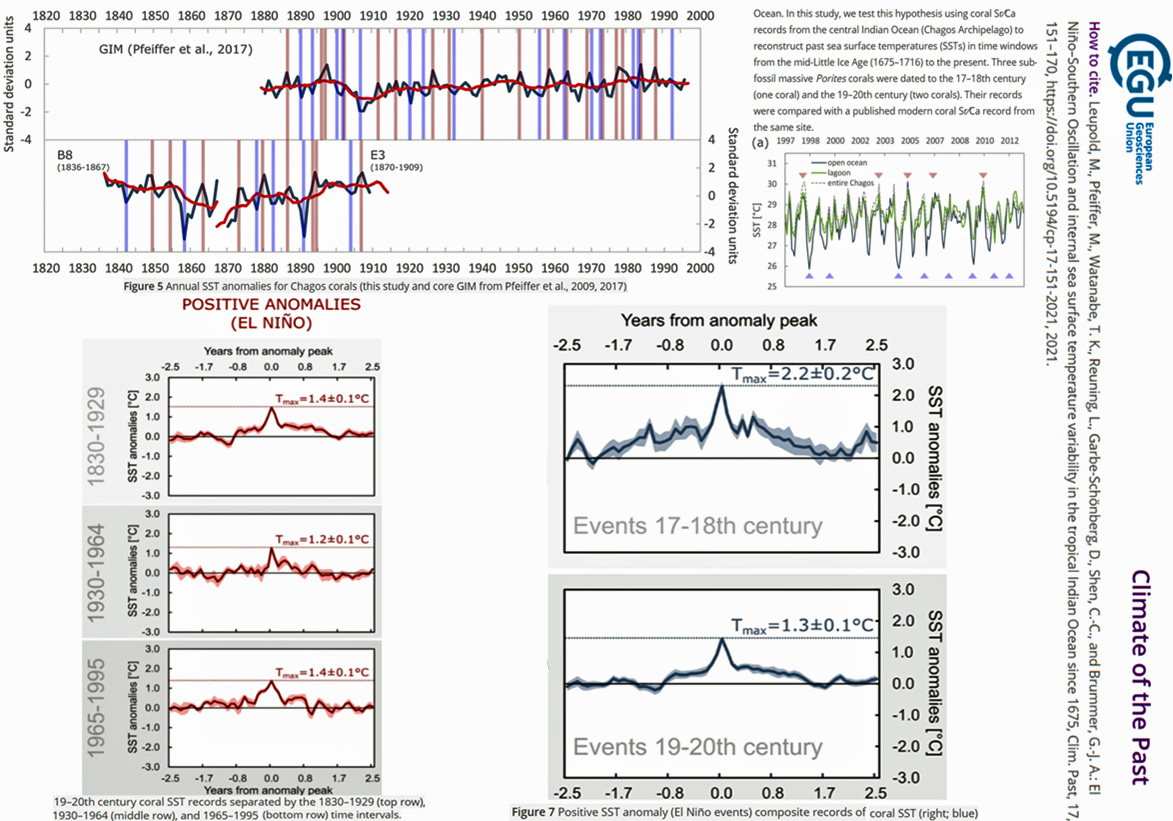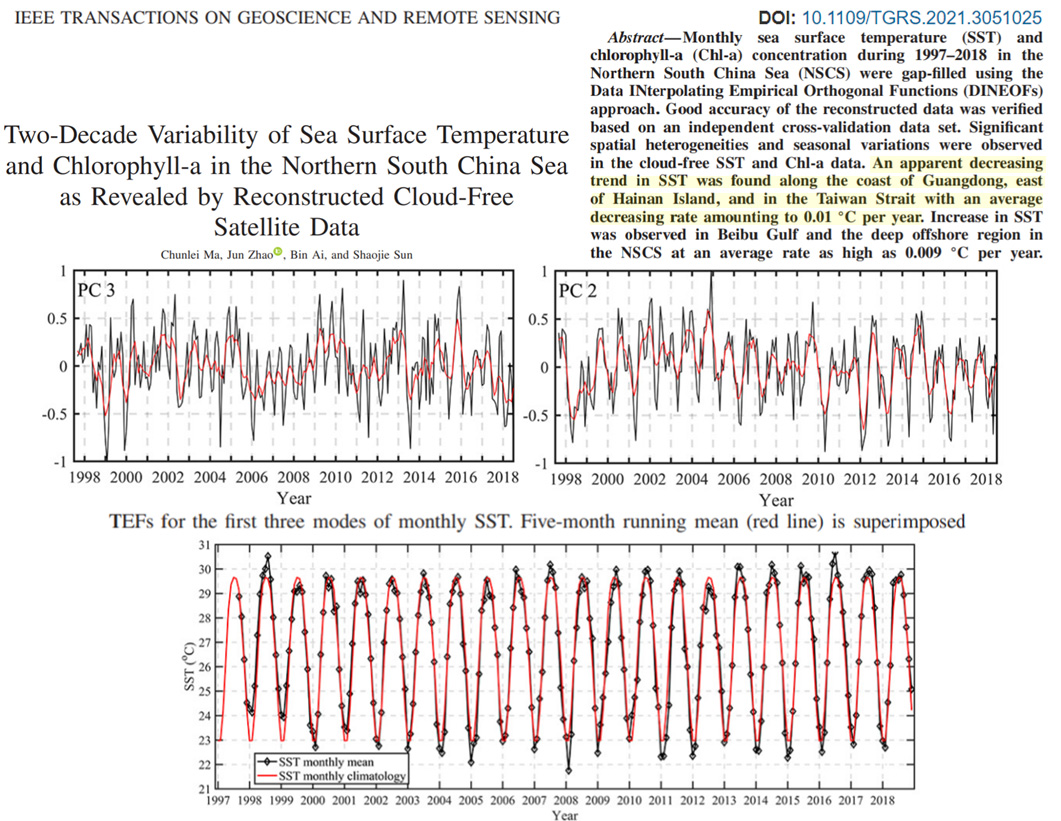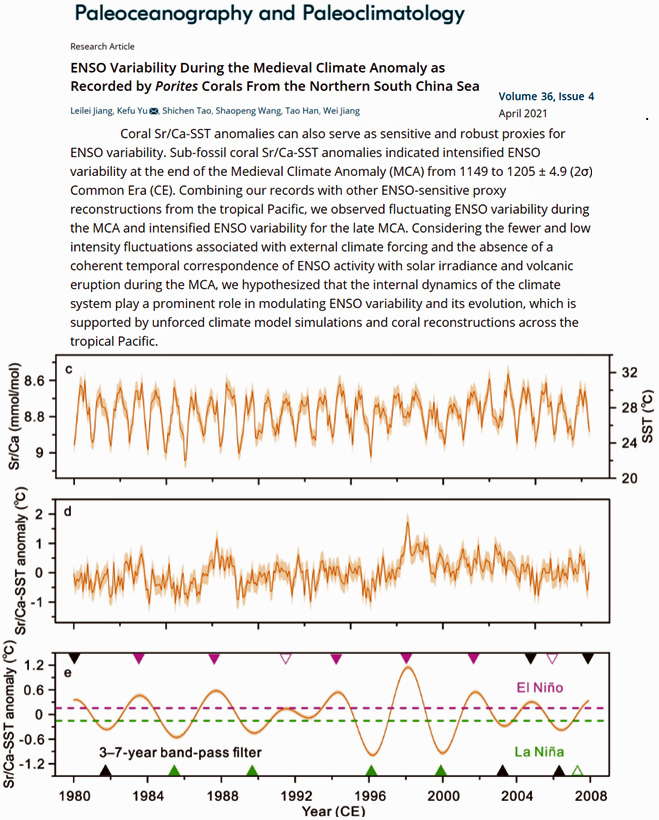New temperature reconstructions using coral skeletons as proxies reveal there has been no apparent net warming in the Great Barrier Reef, central Indian Ocean, and South China Sea since the 19th century – or even in recent decades.
Coral skeletons can be used as proxies to reconstruct 1870s-present sea surface temperatures “throughout the Great Barrier Reef”. Evidence of dramatic warming aligning with the post-1940s rise in CO2 emissions is absent in the reconstructions.

Image Source: Wu et al., 2021
The central Indian Ocean is home to a large swathe of the Earth’s coral reefs. The amplitude of the positive temperature anomalies (Tmax) during El Nino events was the same (1.4°C) in 1830-1929 as it was from 1965-1995. Peak anomalies in the 1600s and 1700s were, however, about 0.9°C warmer (2.2°C) than the peaks in the 19th and 20th centuries (1.3°C).

Image Source: Leupold et al., 2021
A decreasing sea surface temperature (SST) trend of -0.1°C per decade has been documented along the coast of Guangdong, east of Hainan Island, and in the Taiwan Strait in the northern South China Sea during the last 20 years (1997-2018).

Image Source: Ma et al., 2021
The modern non-warming trend in the northern South China Sea can be extended to 1980 when using fossilized corals (Sr/Ca) to reconstruct SSTs.






[…] Related: GBR, Indian Ocean, South China Sea Corals Have Experienced No Obvious Modern Warming […]
Kenneth, the last of the highlights in Wu et al. (2021) states: “Sea surface temperatures in this area are increasing.” Whether or not the GBR warming is “obvious” is not scientifically relevant. Not obvious to the naked eye, or to a statistical analysis? The study is paywalled and the abstract gives no specifics as to warming rates. If you have that info, please share. Best, Marlo